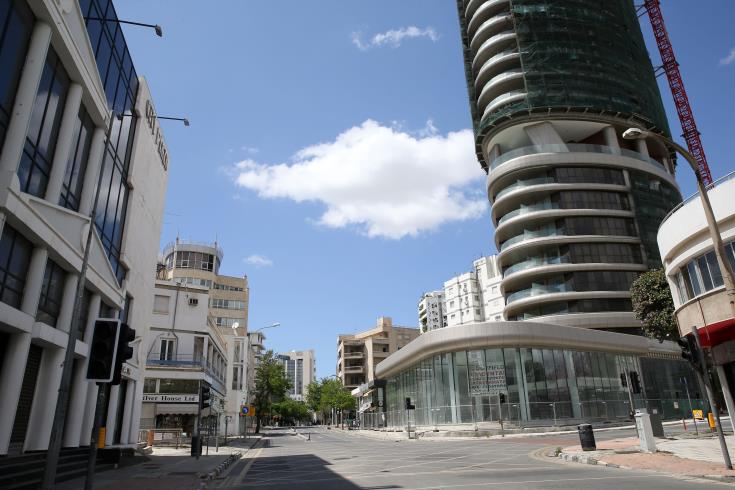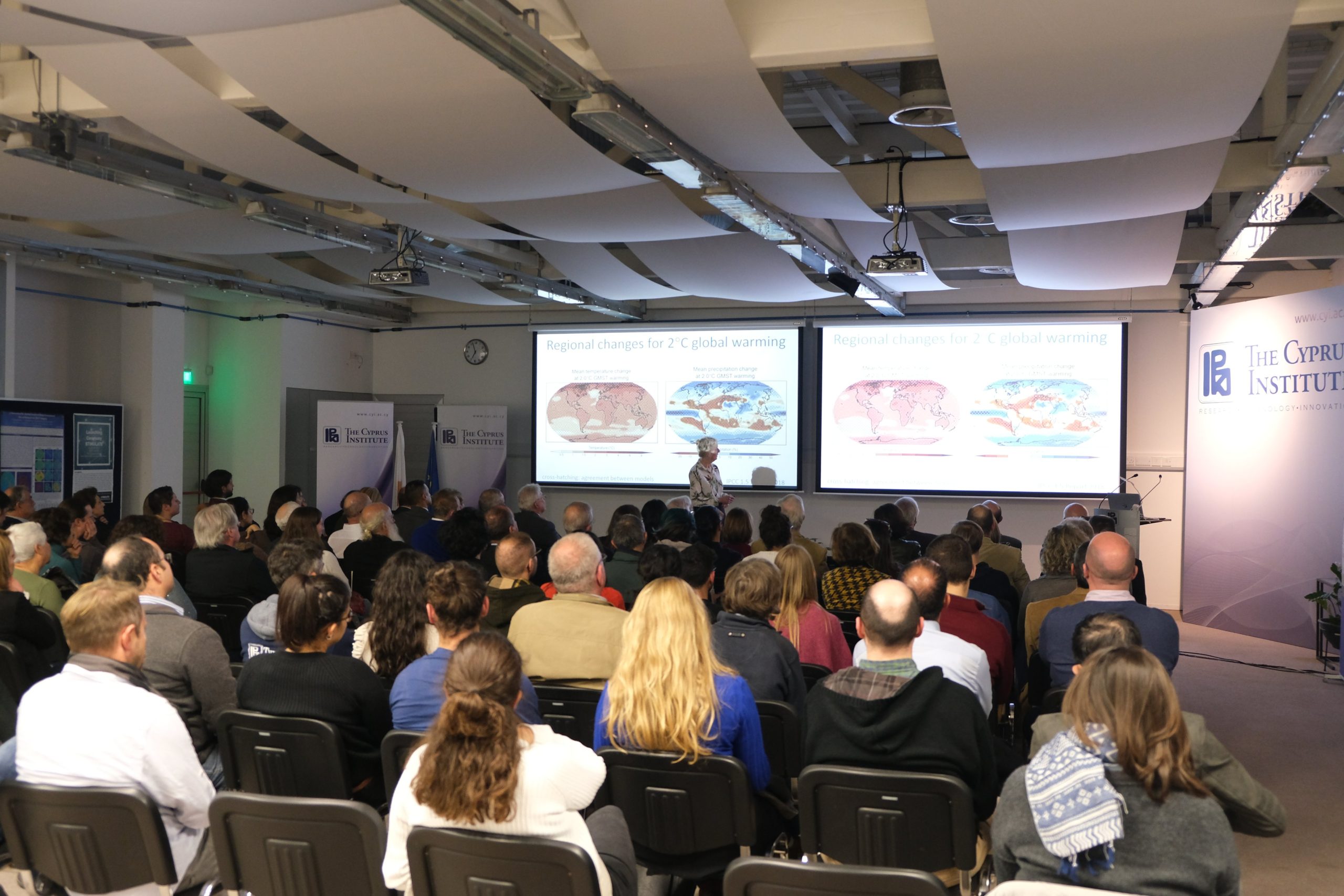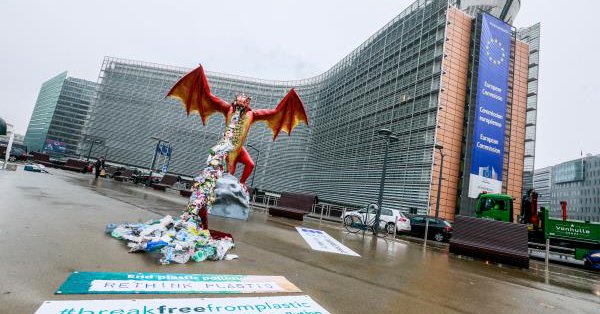Any policies and strategies implemented for climate change require the set up of appropriate monitoring mechanisms in order to collect the necessary data and be able to better assess and evaluate these policies, Marina Neophytou, researcher at RISE Center of Excellence has told the Cyprus News Agency.
Neophytou spoke to the agency on the occasion of a recent conference hosted by RISE, titled “Digital Twins for Sustainability” in the context of Enviroinfo 2020. It was the 34th edition of EnviroInfo2020, the long standing and established international and interdisciplinary conference series on leading environmental information and communication technologies.
The main theme of the EnviroInfo2020 was the emerging research concept of digital twins, of natural or urban environments and processes, towards sustainability and advanced intelligence.
“Sustainable Digital Twins of Smart Environments” is also the flagship project of RISE CoE.
More specifically the areas covered by the conference ranged from agriculture, oceans and waters (plastics), industrial and circular economy, forestry, air quality in cities, transport and logistics.
Particularly interesting applications and solutions where discussed during the conference on how information systems are built to support, optimize, maintain and observe these environments.
In addition, the concept of digital twins of natural environments was explored in the areas of bee keeping, marine ecosystems and outdoor tourism. Notable was the fact that a diverse pool of techniques can be applied when studying these topics such as optimizations, machine learning and artificial intelligence, geospatial analysis, measurements/sensing and the Internet of Things. Finally, research in biodegradable plastics and recycling considerations for plastic innovation, concepts new to the conference, were presented.
Neophytou explained that data analysis can send early warnings to policy makers and the public and can help prevent major physical and financial damage at a later stage. The researcher at RISE explained to Cyprus News Agency that cities are complex systems connected to economic, ecological and demographic conditions and parameters and for a better understanding of these systems, digital twins of the city are developed.
“Digital twins are essentially realistic computer models that are able to simulate the operation of a city at a high level of detail. Using sensors and other digital tools to produce high-quality data, researchers can gather information on a large number of parameters of a city, such as air quality, traffic and pedestrian flow, and many other dimensions of urban life.” , she said.
RISE scientist also explained that by using these models the researchers can simulate and understand their complex interactions. “We can see, for example, how a change in the traffic system could affect air quality and citizens` travel times and commutes, or how planting trees could improve the city`s air quality. Using these systems can help those in charge see how their decisions will affect the city and its citizens and help them make the best decisions”, she said.
The conference did not address the current pandemic of COVID-19 and how it relates to human behavior towards the natural environment, animals and intense human activity, however Neophytou notes that human activity and environmental degradation, have direct and indirect effects on human health with a shocking example of air pollution associated with 600 to 800 premature deaths in Cyprus.
“We need even greater control over the production and consumption of food, with more precise and explanatory controls throughout the chain, from the farm to the consumer`s plate. Turning to vegetarianism will alleviate and reduce the likelihood of future animal-derived viruses, while alleviating some of the great pressure on ecosystems from livestock,” she said.
Regarding Cyprus in particular, which is located in the Mediterranean region with a very acute problem of the climate crisis and what policies and strategies should be implemented to minimize the problem, RISE researcher told the agency that according to the scientific community, climate change seems to be undisputable and the Mediterranean basin is expected to experience the most adverse effects of climate change.
“As a result, Cyprus is projected to face an acute problem from climate change with significant increases in temperature and decreases in rainfall. Serious negative effects should be expected in the coming decades in various sectors such as water supply, agricultural production, health, environment, energy, tourism, etc.” , she added.
Neophytou also said that in order to deal with climate change, it is important to adopt and implement measures as soon as possible. These measures, are divided into two main categories: (a) measures to mitigate climate change; and b) measures to adapt to climate change.
She stressed that priority should naturally be given to mitigation measures and policies as they aim to curb climate change. Such policies and measures may include:
Reducing greenhouse gas emissions
Increasing the share of RES in energy consumption
Increasing energy efficiency
Promoting sustainable agriculture and animal husbandry
Promoting resource savings and recycling
Promoting sustainable transport
Circular economy
Smart and green cities
Environmental education and culture
Neophytou was asked about the strategy for the development of the urban environment in Nicosia and other cities of Cyprus and to what extent is in the right direction. She was also asked on the policy for tall buildings.
“From what I know at least for the Municipality of Nicosia, the urban environment development strategy is moving in the right direction, as its main goal is integrated sustainable urban development that includes sustainable mobility actions, bioclimatic planning and smart city,” she says.
According to Neophytou, in addition, through the implementation of the smart city strategy in the Municipality of Nicosia there will be the possibility of recording data related to the environment, energy, air and in combination with the implementation of the Nicosia project of the RISE Center of Excellence, which provides for the creation of a twin of the city.
She explained that researchers will be able to design policies that will adapt and respond to the data of the city and the growing needs of its citizens and businesses. For the policy of tall buildings she said that it is beneficial, when done with a well-thought-out design that will take into account the uses in the city.
The Research Centre on Interactive Media, Smart Systems and Emerging Technologies is a Centre of Excellence in Research and Innovation on Information and Communication Technologies in Cyprus, aiming to empower knowledge and technology transfer in the region. It is a joint venture between the three public universities of Cyprus – University of Cyprus, Cyprus University of Technology, and, Open University of Cyprus – the Municipality of Nicosia, and two renowned international partners, the Max Planck Institute for Informatics, Germany, and the University College London, United Kingdom.



